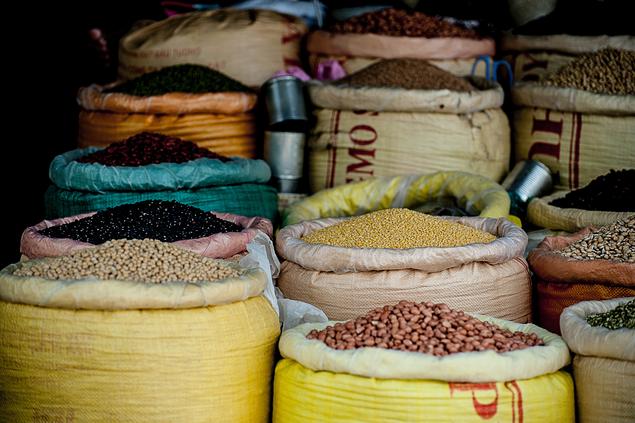Suitable seeds webinar

- (21 October) ,
- (22 October) ,
Governing crop genetics: How to untie the knot of ownership, control and circulation of suitable seeds
Welcome to this webinar which presents the research results of the project Suitable seeds for Food Security in Fragile States. Our findings may have implications for future practices in the governance of crop genetic diversity and with this invitation we wish to engage you in discussing central and emerging issues in crop genetics and food security.
21 October 2021, 10:00 – 13:00 CEST
Legal developments: International to National Level
Kristin Rosendal (FNI): Introducing the Suitable Seeds Project. Legal Developments – International to National Level
Morten Walløe Tvedt (HiMolde): A Contract-Law Analysis of the Standard Material Transfer Agreement (SMTA) of the FAO Plant Treaty – Implications for Intellectual Property Rights
Christian Prip (FNI): Changes in EU Seed Regulations – Global Trends?
Vibha Dhawan (TERI): Regulating Germplasm Exchange: Constraints for Future Growth in Agriculture
Discussion
22 October 2021, 10:00 – 13:00
Challenges and options of Gene Banks from the Local to the Global Level
Regine Andersen (FNI): Gene Banks across Scales from the Local to the Global Level – an introduction
Kamalesh Adhikari (SAWTEE): The Role of Intellectual Property in Shaping the History and Practices of Community Seed Banks in Nepal
Anitha Ramanna (SAWTEE): ‘Stewardship’ or ‘Ownership’ in India: Options for Community Seed Banks in Managing Crop Genetic Resources in relation to Intellectual Property Rights
Gor Movsisyan (UoY) and Pål Skedsmo (FNI): National Gene Banks in Armenia and Effects of International and National Legislation
Ola Westengen (NMBU): International Gene Banks and the Svalbard Global Seed Vault – in the Context of International Treaties and Collaboration
Discussion
Food security in all parts of the world depends on access to a diversity of plant genetic resources – suitable seeds. Diversity enables the development of crop varieties that respond to environmental challenges, such as pests and diseases and the effects of climate change. The genetic diversity among and within plant varieties is declining all over the globe. The development of new plant varieties, innovations in plant breeding, and ownership to these are increasingly taking place within the domain of transnational seed corporations – sometimes at the expense of farmers’ customary and community seed systems and affecting the circulation of suitable seeds for food security. The corona pandemic is raising awareness of how patenting and the related dominating position of large pharmaceutical corporations affect access to vaccines and medicines – a similar concentration of transnational seed corporations causes uncertainty regarding global access to important food crops.
Day one we present topical legal developments at international and regional levels. The Governing Body of the International Treaty on Plant Genetic Resources for Food and Agriculture is debating changes in the Multilateral System of Access and Benefit-sharing and the EU is moving toward more lenient seed regulations. A case study from India discusses implications for domestic germplasm exchange. Day two we present in-depth country studies of seed-/gene banks from the local to the global levels with examples from Nepal, India, Armenia, and a study of the rescue operation of Syrian seeds by ICARDA and the Svalbard Global Seed Vault.
Seed governance is affected by a variety of global and national regulations, and we ask: How do evolving legal frameworks affect the conservation and circulation of suitable seeds in fragile states? How will the private sector respond to these challenges and how may public and private actors help untie the emerging knots in ownership, control, and circulation?
The project is funded by the Research Council of Norway (project number 274519) and is led by the Fridtjof Nansen Institute (FNI) in Norway with research partners from the Energy and Resources Institute (TERI), India; South Asia Watch on Trade, Economics and the Environment (SAWTEE), Nepal; the Environmental Law Research Center of the University of Yerevan (UoY), Armenia; and the Norwegian University of Life Sciences (NMBU).
